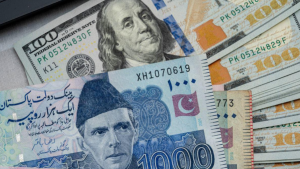
[ad_1]
According to OpenAI, efforts are being made to stop misuse, give transparency on content created by AI, and provide access to reliable vote data.
The world’s top artificial intelligence (AI) company, OpenAI, has announced the creation of tools to combat misinformation, which is a significant step toward ensuring election integrity worldwide.
The business is “working to prevent abuse, provide transparency on AI-generated content, and improve access to accurate voting information,” according to a blog post by ChatGPT’s creator.
Given the risks of false information and fake news impacting election processes globally—many nations, including Pakistan, India, the United States, and the European Union—this action is seen as crucial.
In addition, the World Economic Forum (WEF) identified AI-driven disinformation as the “biggest short-term threat” to the world economy in its Global Risk Report.
With a pledge to halt the detrimental usage of ChatGPT and DALL·E, OpenAI aimed to encourage all parties involved in safeguarding the fairness of elections.
“We want to ensure that this process is not compromised by the usage of our technologies. Our goal is to ensure the safe development, implementation, and use of our AI systems. Like any new technology, these instruments have advantages as well as disadvantages. They are also unparalleled, and as we get more insight into the applications of our products, we will continue to refine our strategy,” the company stated.
Read More: ECP bans changing of Election symbols
OpenAI stated that the company is working on many provenance initiatives that would attach trustworthy attribution to the text produced by ChatGPT and let users to determine whether an image was produced using DALL-E 3. The company noted the significance of labeling AI-crafted material.
“We will apply the digital credentials of the Coalition for Content Provenance and Authenticity, which uses cryptography to encode information about the provenance of content, for images produced by DALL-E 3 early this year.”
According to AFP, the coalition—also known as C2PA—aims to enhance techniques for locating and tracking digital content. Microsoft, Sony, Adobe, and the Japanese photo companies Nikon and Canon are among its members.
[ad_2]
Source link





